Democrats Given Green Light
A new decision from the Senate Parliamentarian hands Democrats a big opportunity to advance President Biden's agenda without Republican support.
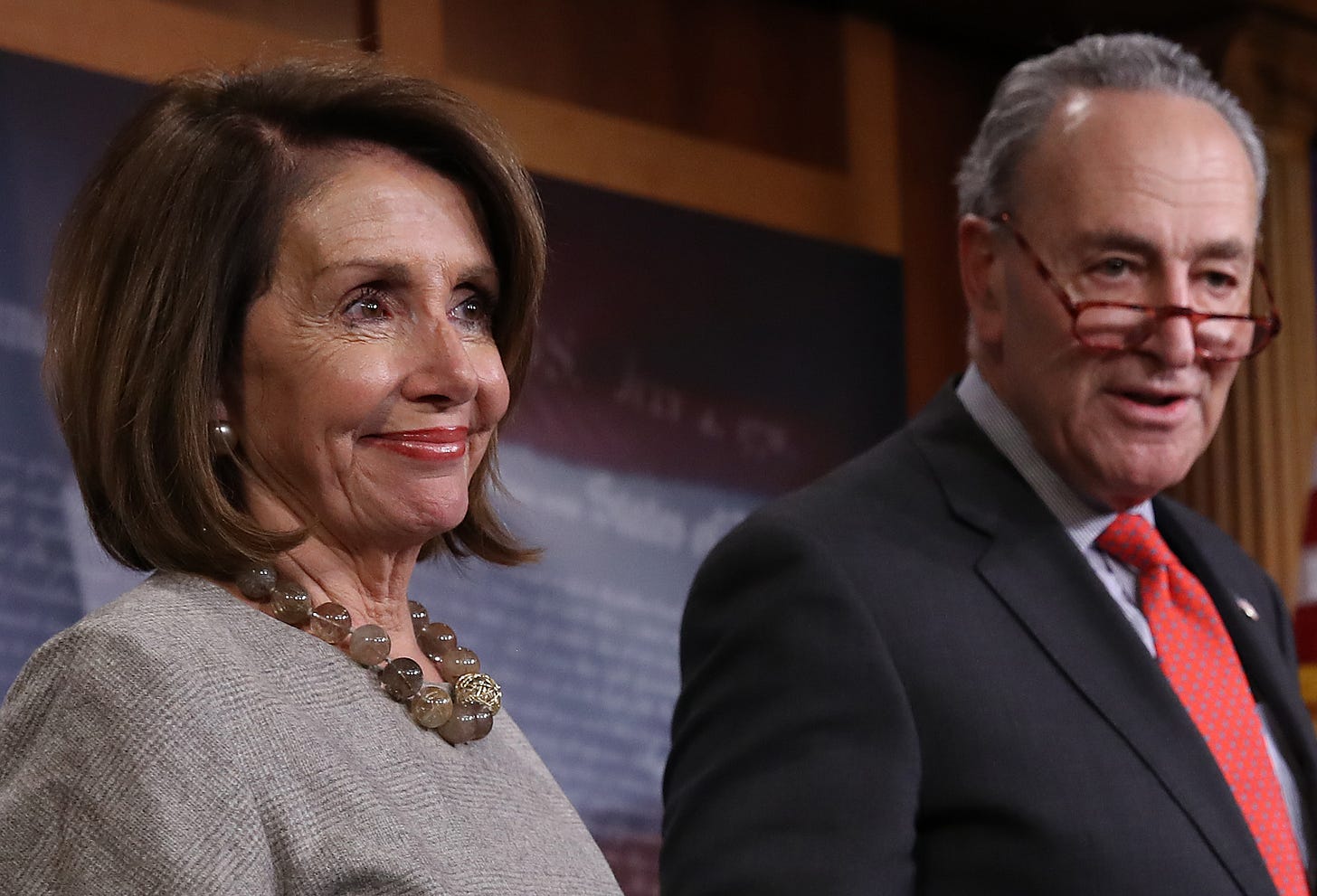
Senate Majority Leader Chuck Schumer’s office released a statement last night indicating the path has been cleared for Democrats to bypass Republican opposition and roadblocks put in place by moderate Democrats. Senator Schumer’s spokesman Justin Goodman relayed the following:
“The Parliamentarian has advised that a revised budget resolution may contain budget reconciliation instructions. This confirms the Leader’s interpretation of the Budget Act and allows Democrats additional tools to improve the lives of Americans if Republican obstruction continues. While no decisions have been made on a legislative path forward using Section 304 and some parameters still need to be worked out, the Parliamentarian’s opinion is an important step forward that this key pathway is available to Democrats if needed.”
Goodman also confirmed that Democrats had not decided whether to use reconciliation moving forward, even though the same reconciliation method was used last month to pass President Joe Biden’s $1.9 trillion COVID relief bill without Republican votes.
Based on this limited information from Schumer’s officer, we can glean that Senate Parliamentarian Elizabeth MacDonough has found that Democrats can put forth a resolution that includes a revised budget and that revision can include reconciliation instructions. The reconciliation process would enable Democrats to pass spending legislation with a simple majority vote instead of the typical two-thirds requirement of 60 votes that are traditionally required.
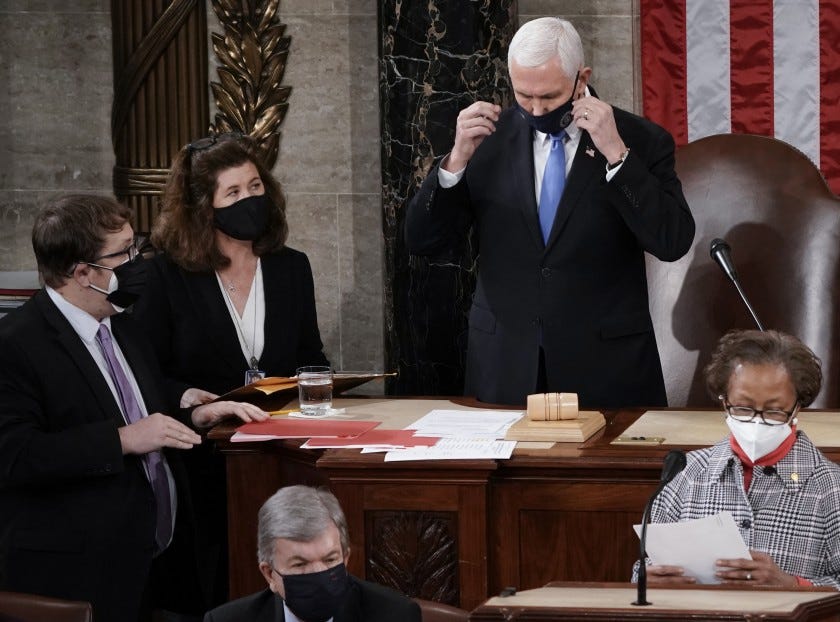
Democrats have been vague about those additional parameters and the potential limitations of this legislative pathway. The ruling appears to mean a majority party could revise budgets more than once in a fiscal year — each time giving them access to reconciliation instructions.
The actual ruling has not been made available to the public at this point, so we cannot fully dissect every implication of what may or may not be allowed, which is an essential factor considering the number of options the ruling now makes available. Senator Schumer’s statement denotes that “some parameters still need to be worked out,” indicating further formal clarification may be required.
What This Decision Means
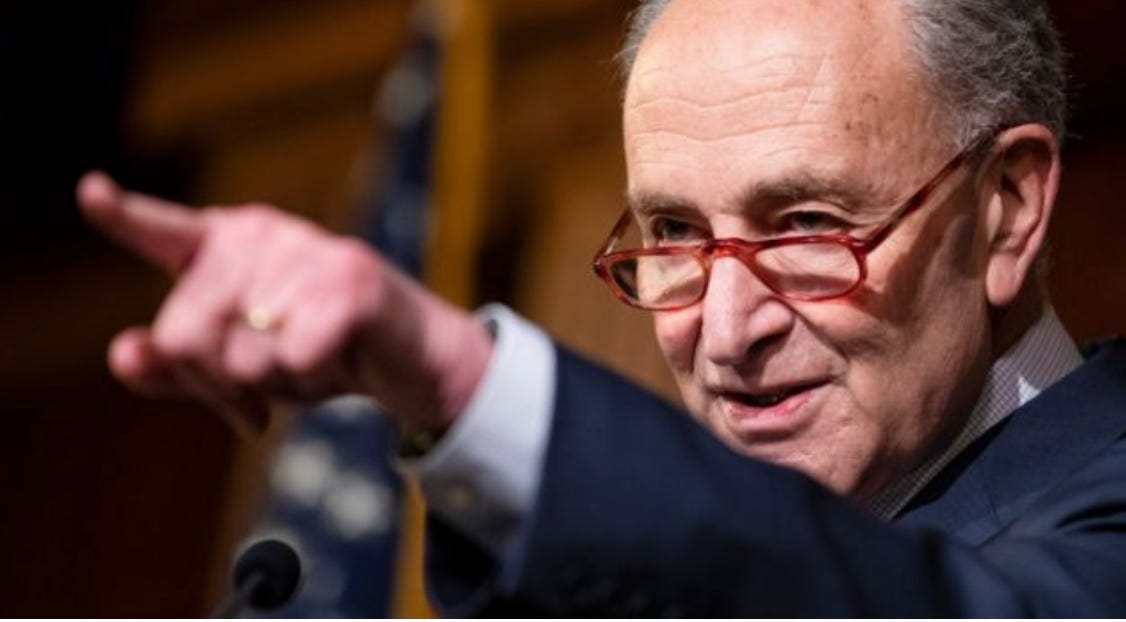
There are many ways in which Democrats can now proceed strategically based on the new ruling, and Schumer has specified that no specific plan has been put in place yet. The parliamentarian’s directive likely allows for the use of the reconciliation process more than once in a fiscal year, and Democrats could utilize this to push forward on top policy priorities that will now only require the support of a simple majority.
Democrats could also break up larger packages, like Biden's infrastructure plan, into smaller pieces that will be easier to pass one at a time. By breaking the legislation up into pieces, Democrats might get Republican support for the various portions. Rather than voting for a sweeping plan that could have several deal-breakers, each portion would be more focused and could draw Republican support.
Democrats can undertake a much more ambitious plan through the process of reconciliation, as long as the measures put forth are related to taxing and spending. Democrats can’t use this reconciliation option to pass more controversial voting rights reform or gun control initiatives. It gives Democrats several options on spending reform, such as child tax credit expansions, increased unemployment benefits, or another round of stimulus checks for Covid relief.
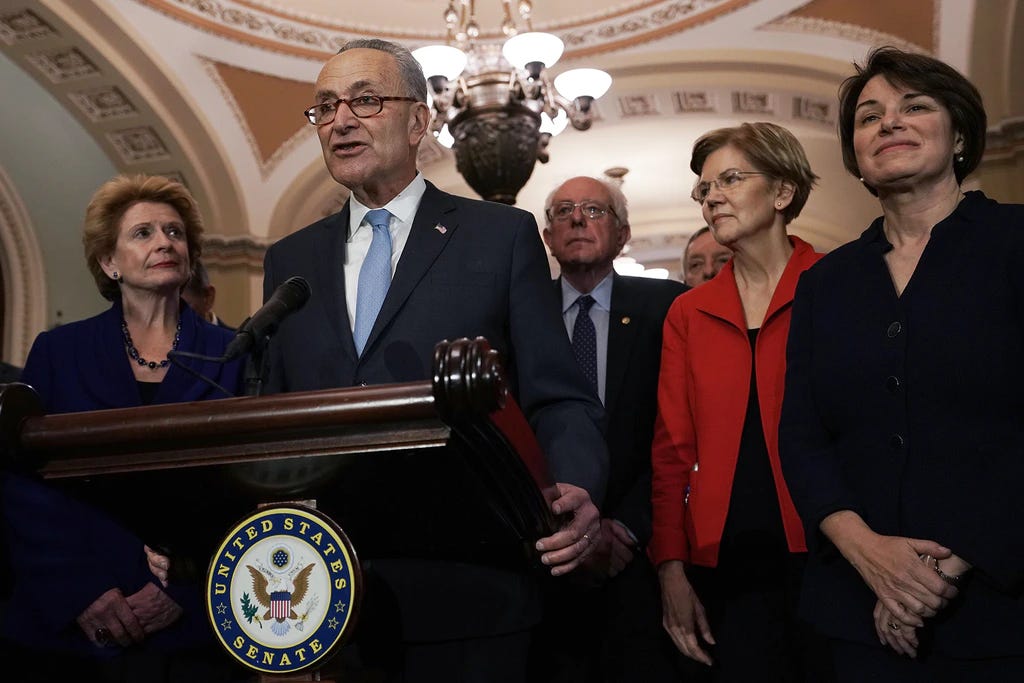
The reconciliation process has also already had limitations placed on it —earlier this year, the parliamentarian ruled that a federal minimum wage increase did not fit within the parameters of the process. Congress typically gets only one opportunity every year to pass legislation under the reconciliation process, so this ruling will now expand the options available to Schumer and Congressional Democrats.
What Comes Next
President Biden is expected to announce another package that attempts to deal with health care and child care — the reconciliation process could be instrumental in helping Congress to turn more Biden proposals into law. The American Jobs Plan will likely need reconciliation to gain passage as law.
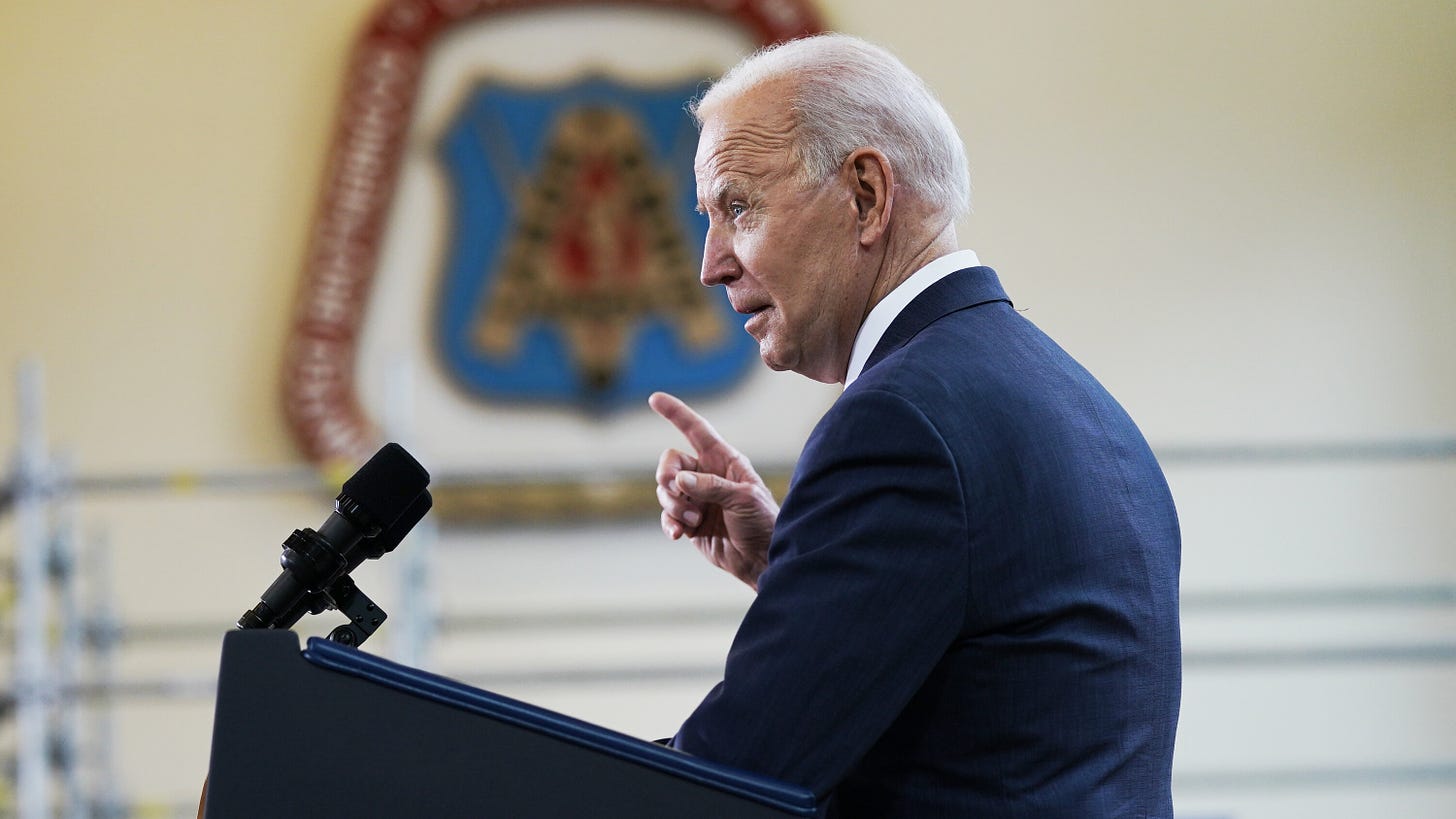
For example, the proposal made by Bernie Sanders (I-VT), which seeks to lower the qualifying age for Medicare to 55 or 60, could be something Democrats move on through the reconciliation process. Essentially, this is an opportunity for Democrats to make good on significant reform promises by providing a much-needed, comprehensive safety net for Americans.
Congress will no longer use the annual 12-bill process to fund the federal government, as they can now amend the 2021 budget. The White House will also likely bypass the tradition of submitting a “skinny budget.” There will most likely be a need for a stop-gap funding bill this fall, and the debt limit debate is also expected to continue.
Moderates Remain a Problem

Some moderate Democrats like Sen. Joe Manchin (D-WV) have resisted aspects of the tentative Democratic plan, such as an increase in the corporate tax rate from 21% to 28%. Manchin supports a smaller corporate tax hike, and he told a local news outlet he wouldn’t support Biden’s proposed tax increase that seeks to create funding for the plans to increase infrastructure and social welfare spending.
Manchin has confirmed that he supports closing tax “loopholes” that benefit the wealthy and could support an increase in the corporate rate to 25%, which is halfway to what Biden and most Democrats support. While Manchin defends this decision by arguing that the 25% corporate tax rate is the global average, he has made no suggestions about making up the difference in funding for planned spending.
Manchin told WVMetroNews radio’s “Talkline” on Monday that the bill, as it exists today: “This bill will not be in the same form you’ve seen it introduced or see people talking about it,” said Manchin.

One thing is clear: Democrats will need Manchin’s support (and vote) to safeguard against inevitable Republican opposition to Biden’s current proposal. Manchin also represents the larger problem of other hold-out Democrats and independents, whose votes will be critical in reaching the 51 vote threshold for tax increases under a special budget process.
Manchin confirmed this resistance during his interview: “It’s more than just me — there are six or seven other Democrats that feel strongly about this — we have to be competitive, and we are not going throw caution to the wind.” Democratic leadership has not formalized legislative details on Biden’s initial policy, and leadership has not specified exactly how they will move forward and still maintain unanimous support among Senate Democrats. “This whole thing has got to change,” Manchin confirmed, reinforcing the difficult task Democrats face in navigating reform within their own party.
There are Downsides

While this latest Senate Parliamentarian decision is a clear win for Democrats and now provides some much-needed flexibility, we don’t know if the Senate now has the authority to proceed with multiple reconciliation bills. Additionally, legislative flexibility can be a double-edged sword — too many options and ideas can make it difficult to corral votes and focus lawmakers on a united plan.
It is also important to note that while reconciliation could be seen as a critical tool that allows Democrats to move forward on major spending increases and reforms ultimately, it can quickly swing the other way once Republicans win back the majority. The strategies employed now by Democrats can eventually be used against them down the road by Republicans to roll back these proposed reforms and programs.
Republicans are also expected to attack the reconciliation process and focus on the narrative that Democrats are overextending their power and engaged in frivolous spending. But, this argument only works if it ultimately motivates people to vote in a Republican majority in the next election — a proposition that becomes increasingly more difficult if the new reforms are popular and supported by a majority of voters.
Amee Vanderpool writes the SHERO Newsletter and is an attorney, published author, contributor to newspapers and magazines, and analyst for BBC Radio. She can be reached at avanderpool@gmail.com or follow her on Twitter at @mamasreallyrule.
Paid subscriptions and one-time tributes embedded in each article allow me to keep publishing critical and informative work that is sometimes made available to the public — thank you. If you like this piece and want to support independent journalism further, you can forward this article to others, get a paid subscription or gift subscription, or donate once, as much as you like today.




I wish that this could be used for the new Voting Rights Act and statehood for Puerto Rico and/or D.C.